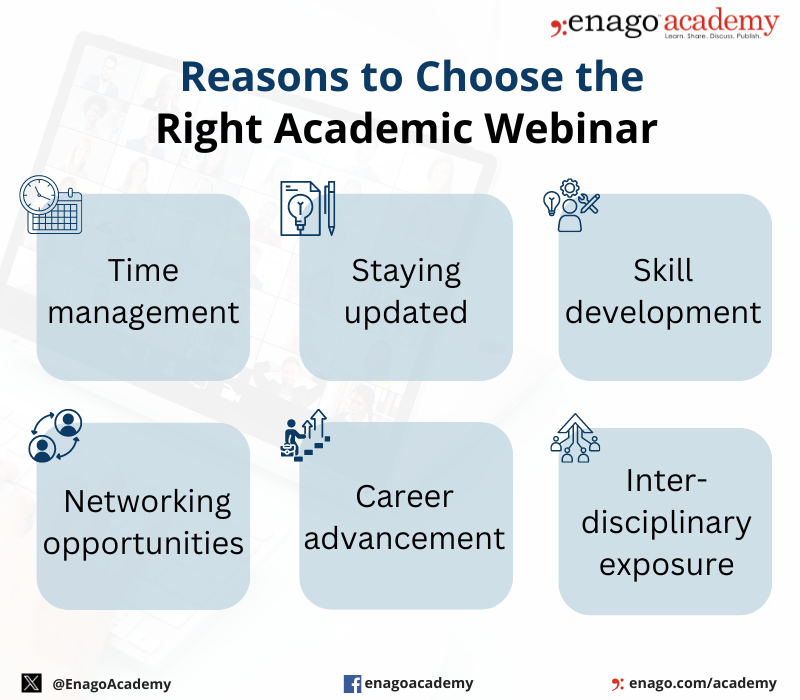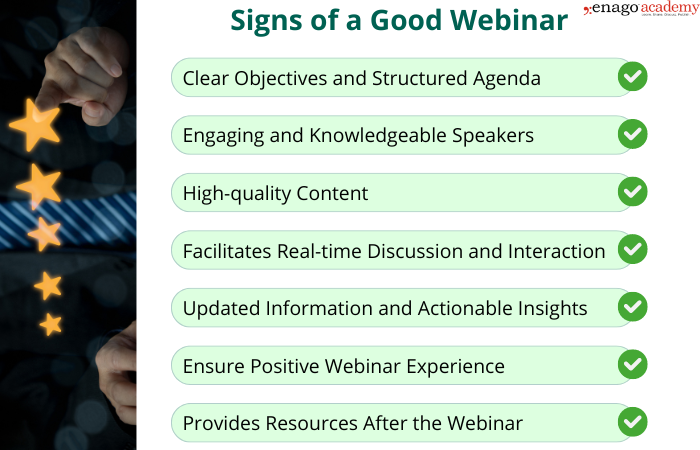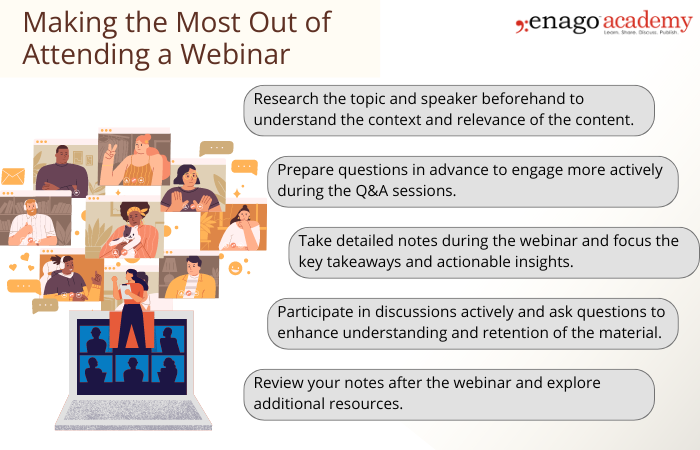Academic Webinars: Transforming knowledge dissemination in the digital age

Digitization has transformed several areas of our lives, including the teaching and learning process. During this evolution, academic webinars have become one of the most effective mediums for learning. It has broken down geographical barriers and allowed access to high-quality educational content. Furthermore, the interactive nature of webinars fosters active learning, as participants can ask questions and engage in discussions.
Benefits of Academic Webinars
Attending academic webinars offers numerous benefits to students, industry professionals, and researchers irrespective of their career stage. They provide opportunities to learn from industry experts, gain insights into the latest trends, and expand knowledge beyond traditional textbooks.
Academic webinars help students develop critical thinking by exposing them to diverse perspectives and practical applications of theoretical concepts. For industry professionals, they serve as a valuable resource for learning to upskill and develop professionally. Furthermore, they offer a platform to network with peers and industry experts. Researchers can also benefit greatly from attending academic webinars, as these events help them understand cutting-edge research and methodologies.
Choosing the Right Webinars for Researchers
Researchers should strategically choose webinars to maximize their learning outcomes. They should look for webinars that offer insights into their areas of interest, present the latest research findings, and provide opportunities for networking and collaboration.
 Furthermore, attending the right academic webinar helps in updating knowledge and professional development. An ideal academic webinar should offer cutting-edge insights, methodological advances, and networking opportunities that can significantly enhance a researcher’s work.
Furthermore, attending the right academic webinar helps in updating knowledge and professional development. An ideal academic webinar should offer cutting-edge insights, methodological advances, and networking opportunities that can significantly enhance a researcher’s work.

Enago Academy’s webinars can be a right choice for students, researchers, and industry experts. They stand out due to their panels of subject matter experts and detail-oriented presentations that addresses challenges in research and beyond. These academic webinars not only improve the learning experience for students, professionals, and researchers but also equip them to adapt to the latest trends and use latest technologies in streamlining their research journey.
By carefully choosing webinars aligning with their specific interests and goals, researchers can efficiently expand their knowledge base. Additionally, attending a good academic webinar can help researchers identify potential collaborators, funding opportunities, and new research directions. However, with the abundance of online content available, it’s essential to be selective and prioritize webinars that offer the most value in terms of content quality, speaker expertise, and relevance.
Making the Most of Attending a Webinar
To maximize the benefits of attending a webinar, it is essential to follow some best practices. Here are five tips to maximize the benefits of attending a webinar:

Academic webinars are powerful tools in the digitized learning landscape as they offer unparalleled opportunities for education and professional development. It plays an important role for students, industry professionals, and researchers to stay updated, acquire new skills, and engage with global experts. As we continue to explore alternative platforms to boost the learning process, the strategic use of academic webinars can play a role in knowledge-building and skill-development.









